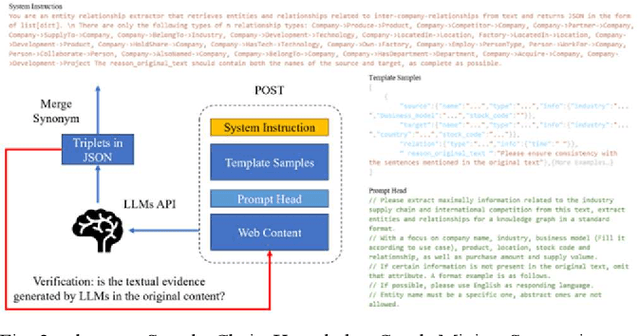Bohan Jin
MDIT-Bench: Evaluating the Dual-Implicit Toxicity in Large Multimodal Models
May 22, 2025Abstract:The widespread use of Large Multimodal Models (LMMs) has raised concerns about model toxicity. However, current research mainly focuses on explicit toxicity, with less attention to some more implicit toxicity regarding prejudice and discrimination. To address this limitation, we introduce a subtler type of toxicity named dual-implicit toxicity and a novel toxicity benchmark termed MDIT-Bench: Multimodal Dual-Implicit Toxicity Benchmark. Specifically, we first create the MDIT-Dataset with dual-implicit toxicity using the proposed Multi-stage Human-in-loop In-context Generation method. Based on this dataset, we construct the MDIT-Bench, a benchmark for evaluating the sensitivity of models to dual-implicit toxicity, with 317,638 questions covering 12 categories, 23 subcategories, and 780 topics. MDIT-Bench includes three difficulty levels, and we propose a metric to measure the toxicity gap exhibited by the model across them. In the experiment, we conducted MDIT-Bench on 13 prominent LMMs, and the results show that these LMMs cannot handle dual-implicit toxicity effectively. The model's performance drops significantly in hard level, revealing that these LMMs still contain a significant amount of hidden but activatable toxicity. Data are available at https://github.com/nuo1nuo/MDIT-Bench.
Enhancing Supply Chain Transparency in Emerging Economies Using Online Contents and LLMs
Dec 22, 2024



Abstract:In the current global economy, supply chain transparency plays a pivotal role in ensuring this security by enabling companies to monitor supplier performance and fostering accountability and responsibility. Despite the advancements in supply chain relationship datasets like Bloomberg and FactSet, supply chain transparency remains a significant challenge in emerging economies due to issues such as information asymmetry and institutional gaps in regulation. This study proposes a novel approach to enhance supply chain transparency in emerging economies by leveraging online content and large language models (LLMs). We develop a Supply Chain Knowledge Graph Mining System that integrates advanced LLMs with web crawler technology to automatically collect and analyze supply chain information. The system's effectiveness is validated through a case study focusing on the semiconductor supply chain, a domain that has recently gained significant attention due to supply chain risks. Our results demonstrate that the proposed system provides greater applicability for emerging economies, such as mainland China, complementing the data gaps in existing datasets. However, challenges including the accurate estimation of monetary and material flows, the handling of time series data, synonyms disambiguation, and mitigating biases from online contents still remains. Future research should focus on addressing these issues to further enhance the system's capabilities and broaden its application to other emerging economies and industries.
Securer and Faster Privacy-Preserving Distributed Machine Learning
Nov 17, 2022Abstract:With the development of machine learning, it is difficult for a single server to process all the data. So machine learning tasks need to be spread across multiple servers, turning centralized machine learning into a distributed one. However, privacy remains an unsolved problem in distributed machine learning. Multi-key homomorphic encryption over torus (MKTFHE) is one of the suitable candidates to solve the problem. However, there may be security risks in the decryption of MKTFHE and the most recent result about MKFHE only supports the Boolean operation and linear operation. So, MKTFHE cannot compute the non-linear function like Sigmoid directly and it is still hard to perform common machine learning such as logistic regression and neural networks in high performance. This paper first introduces secret sharing to propose a new distributed decryption protocol for MKTFHE, then designs an MKTFHE-friendly activation function, and finally utilizes them to implement logistic regression and neural network training in MKTFHE. We prove the correctness and security of our decryption protocol and compare the efficiency and accuracy between using Taylor polynomials of Sigmoid and our proposed function as an activation function. The experiments show that the efficiency of our function is 10 times higher than using 7-order Taylor polynomials straightly and the accuracy of the training model is similar to that of using a high-order polynomial as an activation function scheme.
 Add to Chrome
Add to Chrome Add to Firefox
Add to Firefox Add to Edge
Add to Edge